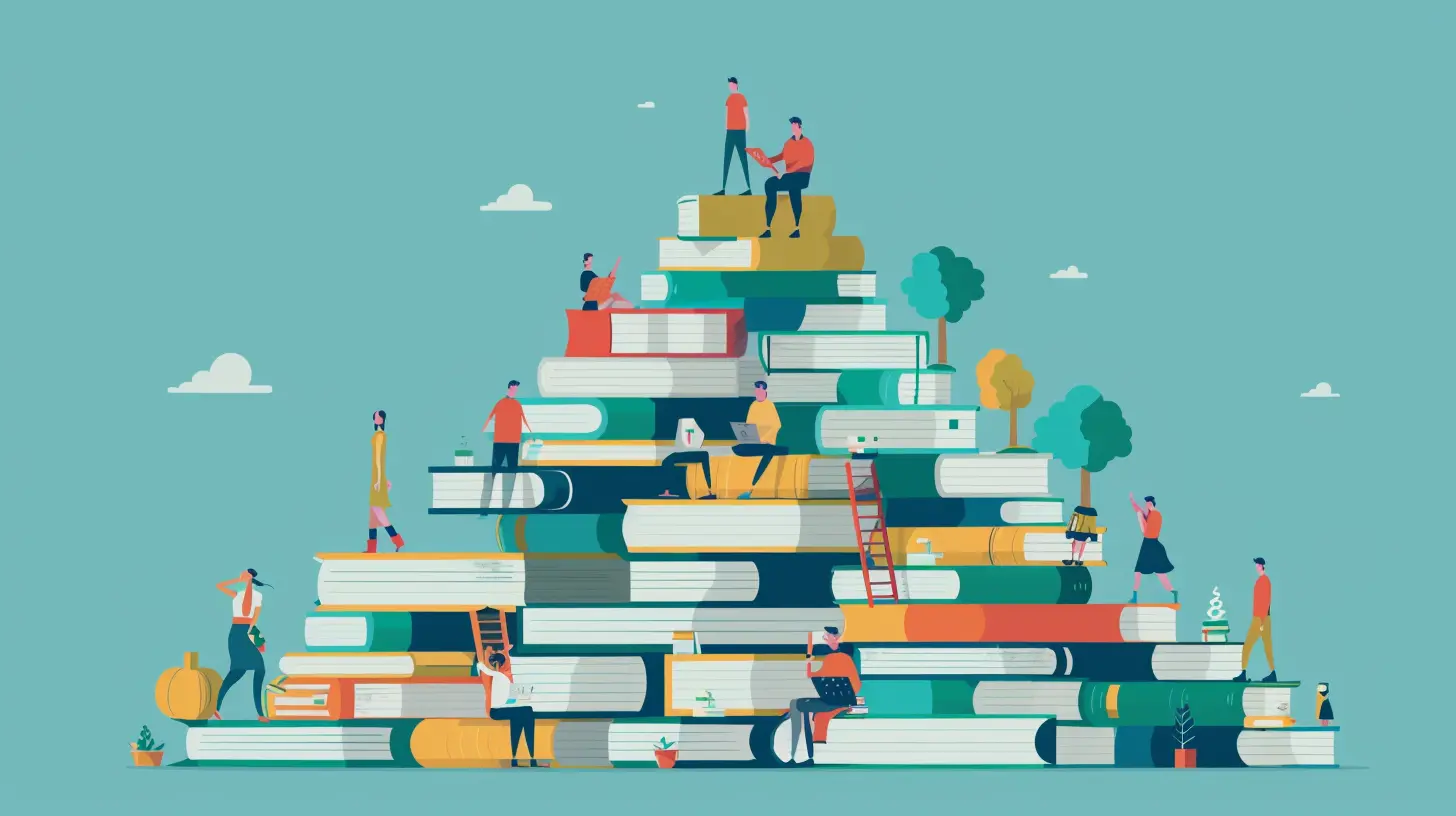The Importance of Lifelong Learning in an Evolving Career Landscape
11 June 2025
Let’s be honest: the days of getting one degree and riding that wave for the next 40 years are long gone. What used to work in the baby boomer era doesn’t fit anymore. Technology is sprinting forward, industries are transforming overnight, and job titles are being invented faster than we can update our LinkedIn profiles.
So, what does that mean for you and me? It means we’ve got to keep evolving, keep growing, and most of all—keep learning. Lifelong learning isn’t just a fluffy buzzword thrown around in HR presentations. It’s a make-or-break factor in today’s ever-changing career landscape.
Whether you're fresh out of college, mid-career, or even considering a total pivot, leaning into lifelong learning is your best ally. Let's break down why it's so essential and how you can make it work for you.
What Is Lifelong Learning, Anyway?
Before we dive in, let’s get on the same page. Lifelong learning is exactly what it sounds like—continued education and personal growth throughout your life.But here's the twist: it doesn’t necessarily mean enrolling in formal classes or chasing degrees forever. It can be anything from watching TED Talks, learning a new coding language, picking up a new skill on YouTube, attending workshops, or even reading a book a month.
Lifelong learning is flexible, personal, and often informal. It's about curiosity, resilience, and the willingness to adapt.
The Job Market Is Changing—Fast
Remember when being “computer literate” meant knowing how to turn on your PC and use Microsoft Word? That was cute.These days, staying competitive means being tech-savvy, social media-literate, and maybe even understanding a few basics of AI, data analytics, or UX design... even if you're not in those exact fields.
Industries are no longer static; they’re dynamic arenas fueled by innovation. Roles that didn’t exist five years ago—like TikTok strategist or blockchain consultant—are now hiring like crazy.
So, if the career landscape is always shifting, doesn’t it just make sense to evolve with it?
Bottom line: If you stop learning, you risk becoming irrelevant. Brutal but true.
The Rise of Soft Skills (and Why They’re a Big Deal)
You might think that learning new tools or technologies is the most important thing. While that’s partially true, companies are increasingly valuing soft skills—think adaptability, communication, emotional intelligence, and problem-solving.And guess what? These are things you can learn and continually improve on.
With remote work, global teams, and diverse work cultures becoming the norm, being able to collaborate effectively, think critically, and stay cool under pressure has never been more vital.
The good news? Every workshop, every feedback session, every podcast on leadership you binge—those all count as learning.
The Personal Payoff: Confidence, Fulfillment, and Resilience
Lifelong learning isn’t just about keeping your LinkedIn profile shiny. It’s also about what it does for you—personally.Here are just a few ways it enhances your life:
- Boosts your confidence: Learning something new pushes you out of your comfort zone and helps you realize you're capable of more than you thought.
- Keeps your brain young: Studies show that continued learning helps maintain cognitive function. It’s like a gym workout, but for your brain.
- Offers a sense of purpose: Setting and achieving learning goals gives you direction, especially during career transitions or uncertain times.
- Increases resilience: When you’re used to learning new things regularly, you’re less likely to panic or feel overwhelmed when the unexpected happens.
So yeah, it’s kind of a superpower.
Real Talk: How to Make Lifelong Learning Work for You
We get it—life is busy. Between emails, family, errands, and trying to sneak in 8 hours of sleep (good luck), where does learning fit in?Here’s the secret: Lifelong learning doesn’t have to be overwhelming. It just needs to be intentional.
1. Make Learning a Habit
Instead of cramming knowledge like we used to for exams, aim for consistency. Read one article a day, listen to a 15-minute podcast on your commute, or swap Netflix time for a documentary once a week.Small but steady wins the race.
2. Set Personal Learning Goals
Treat learning like your fitness goals. Want to break into marketing? Set a goal to complete an SEO course in the next two months. Thinking about UX design? Schedule weekly learning sessions.When you set specific, time-bound goals, you’re more likely to follow through.
3. Learn from Everyone and Everything
We often think of learning as something we do on our own in a library or through a course. But in reality, we learn from co-workers, bosses, clients, and even our mistakes.Every job, every project, every conversation can be a learning opportunity—if you’re open to it.
4. Embrace Online Learning Platforms
The internet is a goldmine. Platforms like Coursera, LinkedIn Learning, Udemy, Skillshare, and even YouTube offer affordable (or free) courses on just about anything.You could literally start learning data visualization today... in your pajamas.
Lifelong Learning Supports Career Pivots
Thinking about switching industries or chasing a different dream altogether? You’re not alone.Career changes are more common than ever, and lifelong learning makes it possible.
By actively gaining new skills, certifications, or even just industry knowledge, you can bridge the gap from where you are to where you want to go. And employers increasingly care more about your ability to learn and adapt than a perfect, linear resume.
So if you’re stuck thinking, “But I’ve never worked in that field,” flip the script to: “I’m learning everything I can to get there.”
The Future Belongs to the Curious
Here’s the thing about the future: we don’t exactly know what it holds. Tech is changing everything—from how we work to what jobs are even available. But one thing is clear:The most valuable workers in the future won’t be the ones who know everything. They’ll be the ones who are willing—and eager—to keep learning.
Think of it this way: the world is like a giant, ever-updating book. You don’t want to stop after the first couple of chapters, right?
Making It Sustainable: Avoid Burnout
Let’s pause for a second. Yes, learning is great, but trying to learn everything at once can fry your brain faster than a dropped iPhone in the toilet.Balance is key.
- Pick 1–2 areas of focus per quarter.
- Mix it up—combine light learning (like articles or videos) with deeper dives (like courses).
- Take breaks. Seriously. Your brain needs downtime to process and retain what you're learning.
Remember, it's called lifelong learning for a reason. Pace yourself.
Instilling Lifelong Learning in Schools and Workplaces
Wouldn’t it be cool if lifelong learning was embedded into the systems we live in?Many progressive schools and forward-thinking companies are already heading this way. They're promoting learning as an ongoing journey, not a checkbox. Employers who offer learning stipends, internal workshops, or “learning hours” recognize this shift.
If you're in a position to influence your workplace or your own education path, push for a learning culture. It benefits everyone.
Final Thoughts: You're Never Really "Done"
So, what’s the takeaway? Lifelong learning isn’t extra credit. It’s essential.In a world that’s changing at breakneck speed, staying still is falling behind. Whether you're an executive, a student, or someone figuring out what’s next, making learning a continuous part of your life is the best investment you’ll ever make.
And hey—it doesn’t have to be boring. Follow your interests. Chase your curiosity. Make learning fun again.
Because the truth is, you don’t stop learning when school ends. You stop learning when you decide to. And that’s the only test you ever have to pass.
all images in this post were generated using AI tools
Category:
Skill DevelopmentAuthor:

Bethany Hudson
Discussion
rate this article
3 comments
Allegra McAnally
In today’s rapidly changing job market, lifelong learning isn’t just beneficial; it’s essential. Embracing continuous education empowers professionals to adapt, innovate, and thrive amid uncertainty. Remember, stagnation is the enemy of growth—commit to learning and watch your career flourish.
June 19, 2025 at 3:54 AM

Bethany Hudson
Thank you for highlighting the critical role of lifelong learning! It's indeed vital for career growth and adaptation in an ever-evolving job market.
Elijah Wells
Thank you for highlighting the significance of lifelong learning. It's essential for adapting to our rapidly changing career environments.
June 16, 2025 at 3:16 AM

Bethany Hudson
Thank you for your thoughtful comment! I completely agree—lifelong learning is vital for navigating today's dynamic career landscape.
Craig Reese
Lifelong learning is essential in today’s dynamic job market. Continuously updating skills and knowledge not only enhances career prospects but also fosters adaptability and personal growth in evolving industries.
June 12, 2025 at 11:46 AM

Bethany Hudson
Thank you for your insightful comment! I completely agree that lifelong learning is vital for adapting to the ever-changing job market and driving personal and professional growth.



